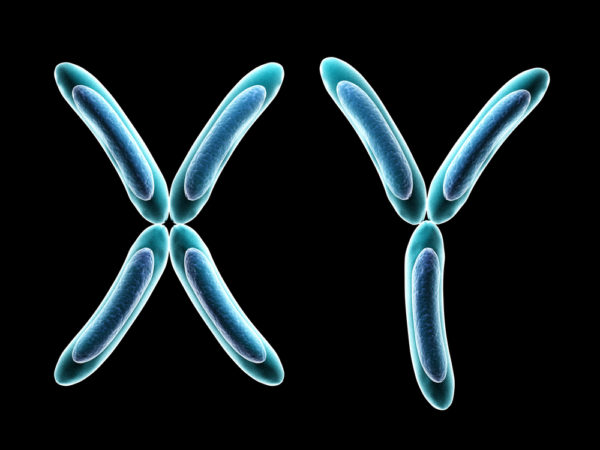The sex we’re assigned at birth depends largely on a genetic flip of the coin: X or Y? Two X chromosomes and you (almost always) develop ovaries. An X and a Y chromosome? Testes. These packages of genetic material don’t just differ in terms of the body parts they give us. With 45 genes (in comparison to around 1,000 on the X), the Y chromosome is puny. And research suggests it has shrunk over time — a proposition that some have, in turns, glumly or gleefully interpreted as predicting the demise of men.
So is the Y chromosome really dying out? And what might that mean for men?
To begin to answer these questions, we have to go back in time. “Our sex chromosomes weren’t always X and Y,” said Melissa Wilson, an evolutionary biologist at Arizona State University. “What determined maleness or femaleness was not specifically linked to them.”



